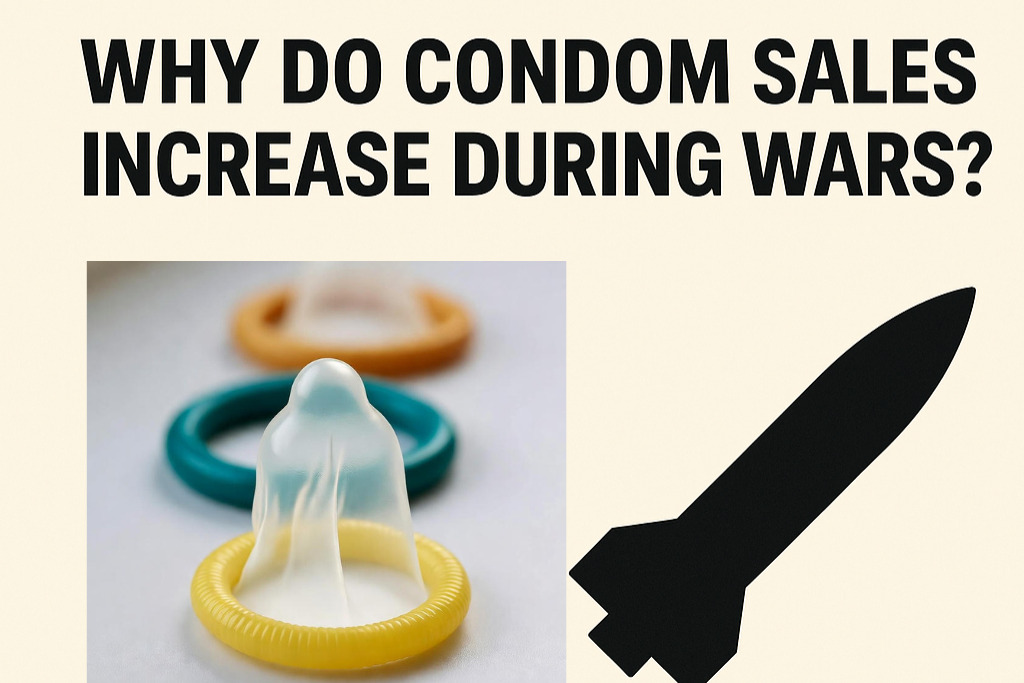Wars and crises usually cause shortages of food, fuel, and essential supplies. But statistics reveal a surprising pattern: condom sales also rise significantly during times of conflict.
The Iran-Israel conflict example
During the 12-day war between Iran and Israel, Iran’s biggest e-commerce platform Digikala reported a 26% increase in condom sales. Experts say the spike reflects how consumer priorities shift under stress, with health and protection products topping the list.
Global cases of the same trend
This is not an isolated event. Similar patterns have been observed in other countries:
- South Korea (2006): Following North Korea’s nuclear test, South Korean condom sales rose sharply, jumping from around 1,500 units per day to nearly 2,000.
- Russia (2022): After Russia invaded Ukraine, retail pharmacy chain Rigla recorded a 26% increase in condom sales, while online giant Wildberries saw a dramatic 170% rise.
- United States (2020): At the start of the COVID-19 pandemic, condom manufacturers like Reckitt Benckiser reported a surge in sales as consumers stockpiled essentials, including sexual health products.
Why does this happen?
Psychologists suggest that during uncertain times, people focus on safety and emotional connection. Alongside food and medicine, they prioritize products that ensure intimacy and personal security. Wars, pandemics, and disasters heighten this instinct, leading to unusual spikes in condom sales.
Conclusion
Conflict doesn’t only shape geopolitics—it reshapes markets and consumer psychology. From Iran to South Korea and Russia, one thing is clear: in times of chaos, people don’t just seek survival, they also seek protection, intimacy, and reassurance.


